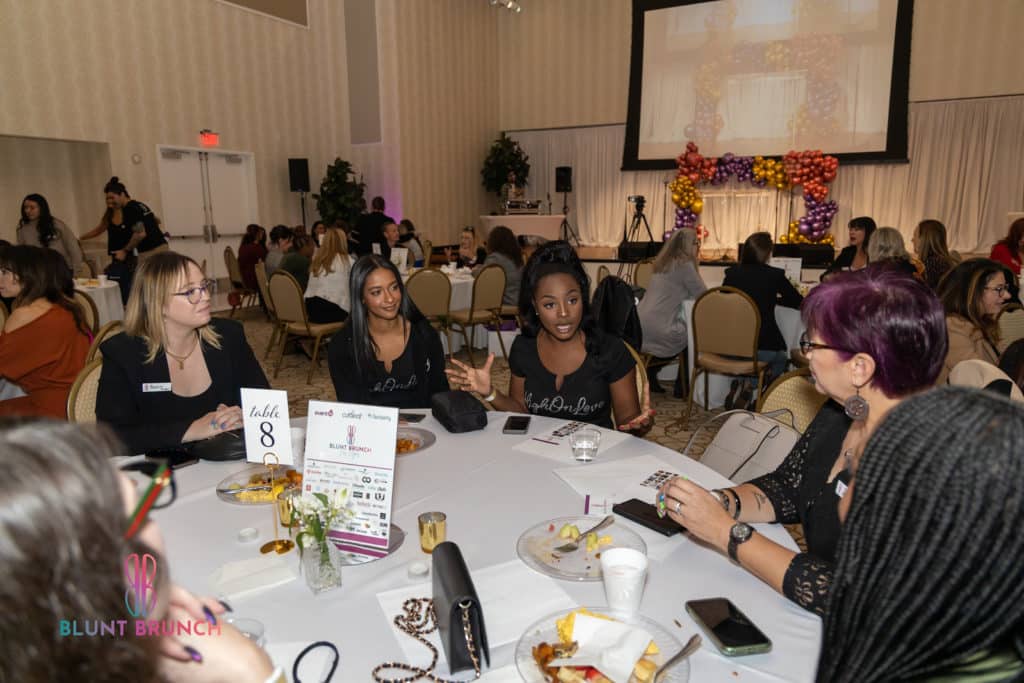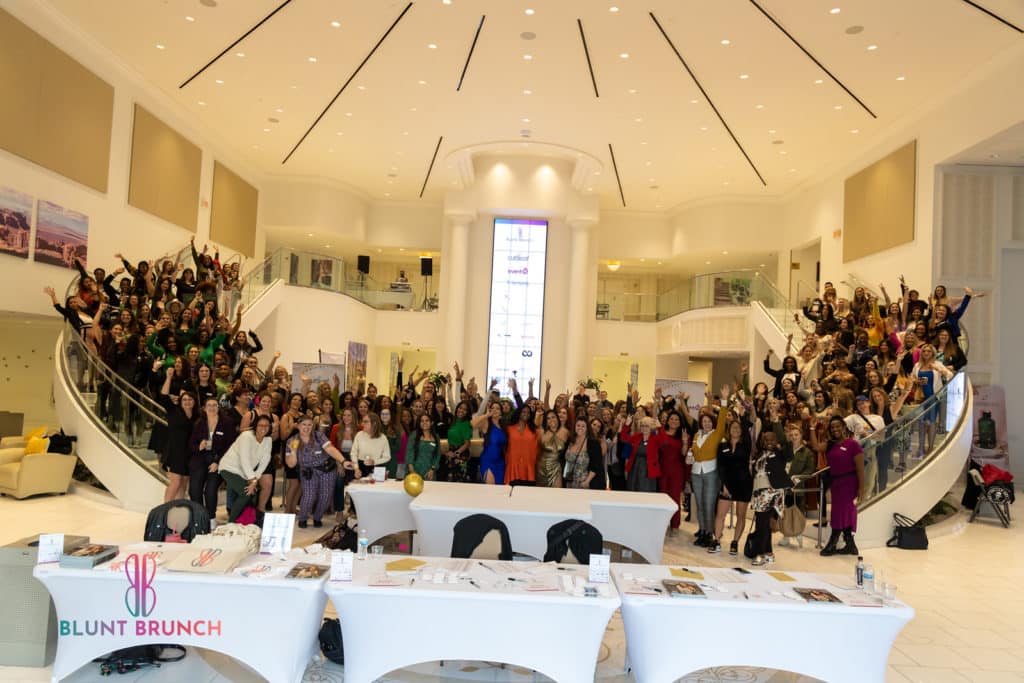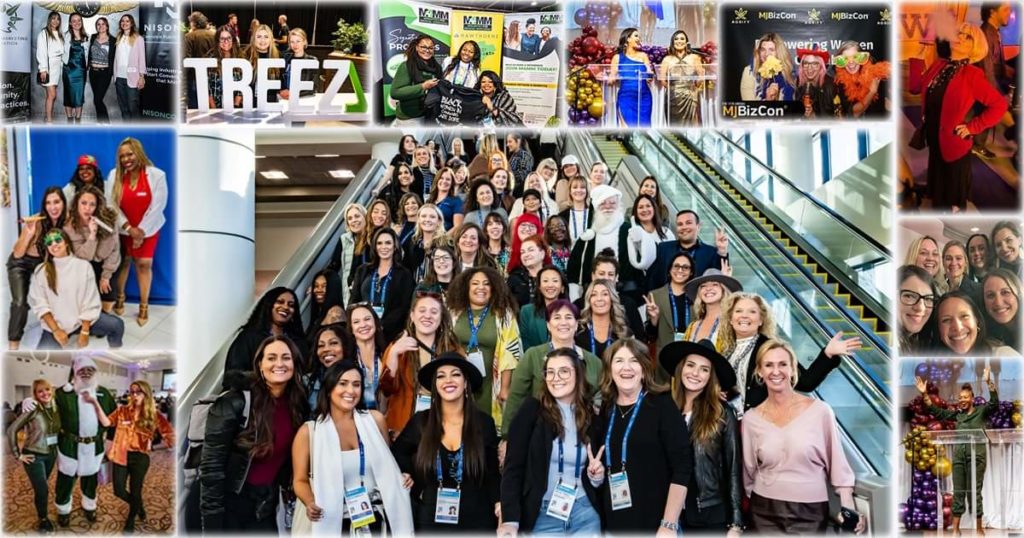What can we do to support women in cannabis? Why is it so hard for them to succeed? How can we rise above the boys club narrative still permeating the industry?
The misogyny and lack of opportunities for women within our broader society and specifically the cannabis space is not a new development, nor is it going away. The challenges and barriers to success women in cannabis face were front and center again earlier this year in the Women in Cannabis Study, where only 11% of women surveyed reported feeling the industry was equitable for all. The numbers were corroborated in a white paper published by Arcview that revealed women account for only 22% of executive leadership positions in cannabis.
After exploring the toxic side of the industry and some of the horror stories that played out at last year’s MJBizCon, I was left with more questions than answers. I also wondered who was doing it right. With so many fantastic folks in the community working to shift the paradigm, I made it my MJBizCon 2022 mission to seek them out and elevate their voices. After speaking with dozens of women, I walked away with many stories of hope—and sadly, a fair share of disgust. We are seemingly heading in the right direction as an industry, but there’s clearly still a lot of work to do.
Fortunately, more people are answering a call to change, uniting to lift women up, and creating fruitful opportunities—even in these difficult times. It’s no secret that the industry is facing monumental struggles, with rock-bottom wholesale prices, layoffs, and regulatory headaches at every turn. But if being in cannabis means an uphill battle to survive, it’s a full-blown war for women.
Blunt Brunch, CannaLadies Lounge, WomenGrow Work To Inspire and Ignite
While planning my MJBizCon 2022 agenda, I noticed a slight increase in the number of events and meet-ups specifically meant to elevate women. Many of the women I spoke with described filling their week with as many women-only dinners, cocktail hours, and business meetings as possible.
The week started off with a bang at the largest national Blunt Brunch event yet. With over 300 women in attendance (along with a few male allies), a dynamic roster of speakers and entertainment, roundtable discussions, and a social hour featuring a wide range of activations and brands, the Blunt Brunch was an invigorating and inspiring way for women to kick off Cannabis Week.
Stephanie Pow, a global cannabis recruitment consultant and founder of With Pow, also found the event to be grounding as she navigated her very first MJBizCon.
“It was great to start the week off in that connection space and really feel aligned and supported by the women that were there at the conference because once we got into the actual conference itself, it felt like we were quite diluted amongst the crowd.”

Adelia Carrillo, CMO and co-founder of EventHi and co-founder of Blunt Brunch, said these sentiments were precisely what she and fellow co-founder Parisa Rad were intending when planning the event.
“This was one of our hopes and visions, we know as business owners ourselves what it is like going to MJBizCon each year, being surrounded by men,” Carrillo said. “Our goal was for our guests, sponsors, and partners to leave our event feeling empowered, confident, and with new friends and colleagues that they could connect with during that week.”
Later that week at the Smoke + Magic after-party presented by FlowerHire, an activation dubbed the CannaLadies Lounge provided a more intimate environment for engaging and impactful conversation. Presented in conjunction with Arcview’s Women’s Inclusion Network, GreenHaus, and Acannability, the event featured an array of women-owned businesses exhibiting their wares along with hosted talks on topics such as “networking as an introvert” and “what I would tell my 15-year-old self.”
First-time MJBizCon attendee Kaitlyn Fitzgerald, a cannabis brand strategist and co-founder of Majic Plant, found the event’s women-led small-group discussions to be incredibly impactful and a breath of fresh air a few days into the whirlwind of Cannabis Week.
“Rather than focusing on why more women aren’t at the table, the conversations focused on building real connections among participants—something in itself is important to building gender equity in this space. It was an experience that, while not specific to women, had the outcome of creating real relationships for women at the table with the people we were meeting for the first time.”
Much like the Blunt Brunch, organizers of the CannaLadies Lounge felt they succeeded in executing their vision of curating an impactful and inspiring experience.
“We wanted to create an environment that was fun and exciting, but that was also conducive to having longer conversations and getting to know each other on a deeper level,” explained Mary Stuart Lawrence, vice president of sales and marketing at GreenHaus. “We only have so much time all together at MJBiz, so we wanted to help everyone maximize their time.”
People of all gender identities participated in the dialogue, something Gabby Pavelko, a consultant and director of business development for Acannability, said is indicative of a shifting paradigm with regard to the scope of support for women in weed.
“There are more male allies and more men feeling comfortable coming forward to have this conversation.”
An official women’s mixer near the MJBizCon trade show floor, sponsored by the organization WomenGrow, also attracted an enthusiastic and exuberant crowd. Women-owned businesses exhibiting were also denoted and given special recognition. The WomenGrow booth was a non-stop celebration of empowerment, offering a safe space within the sprawling convention center.
“We remain committed to elevating women in our industry, and being able to bring Women Grow to MJBizCon under this partnership is exciting,” said Dr. Chanda Macias, Chairwoman, and CEO of Women Grow. “The MJBizCon team understood our vision, and for the first time since its inception, we had this incredible opportunity to make HERstory at the largest cannabis event in the world. We could not think of a better example of true allyship.”
However, some questioned why any of these women-centric events were necessary at all.
“It makes me sad and tired that we still need to have a mixer titled ‘Empowering Women In’ anything these days, but particularly in cannabis—which we thought we were building with the guys from the ground up and would therefore naturally find ourselves in a place of full participation,” said one female attendee who asked to remain anonymous.
“Instead, this underscored how very far we remain from parity in a rapidly emerging industry that absolutely appears to be getting away from us.”
“I’ll never go back…”
Despite the increase in activities meant to unite and empower women, it wasn’t all good news. Many people I spoke with described experiences ranging from micro-aggressions to abject trauma.
The most visible example was the two men seen around town wearing shirts that read “Buy Weed From Rich White Men,” a tasteless parody of Jasmin Mans’ Buy Weed From Women brand. The stunt went viral, with outrage reverberating through MJBizCon and beyond.
“I do think that in this moment of collective industry trauma, you’ve got a lot of folks who have entitlement issues lashing out — that’s systemic and societal,” remarked Timeka Drew, founder and CEO of Biko Flower and chief growth officer at NUG. “The more important talk about how we steal IP from Black women and we utilize that for our own gain in this industry is a deeper conversation.”

Most of the women I talked to said they were vastly outnumbered at the conference and many after-parties, which is not a big surprise given the demographics of the industry. However, several of them reported being cat-called on the trade show floor, with one telling me she and her friend were also propositioned as sex workers at an after-event.
Other stories were far more sad.
One executive confided that she was drugged at a business dinner, blacked out, and was placed in a cab by her male counterpart. After waking up disheveled with fresh bruising, she pieced together what happened to her after requesting security footage from her hotel. The video revealed a physical altercation with her cab driver and eventual police intervention.
“I’m still feeling the effects of the drug, and this happened over a week ago,” she said. I wondered aloud how her supposed friend could allow her to get into a cab in such a state, and not question her safety.
Another attendee told me about being drugged and sexually assaulted at MJBizCon in 2021 by a male acquaintance. She opted to return to the conference in 2022, only to run into the alleged perpetrator on the trade show flow. The encounter sent her into a panic attack, leading to her early departure from Vegas.
“I’ll never go back,” she told me tearfully.
The Ways in Which Women Will Rise
These heartbreaking stories are likely only two of many, as most sexual assaults go unreported. Abuse is not a cannabis-specific problem, but what can we do to help ensure people are safe? How can we all take a stand to make it clear that any and all forms of harassment are unacceptable?
How can women rise above?
Some of those I spoke to suggested moving MJBizCon out of Las Vegas altogether, wondering if the bad behavior of men at the show is a product of the environment. Others suggested more sexual harassment training industry-wide and education on the trade show floor.
Nearly all of the women I spoke to insisted that we need to look out for one another, and insist men are part of the conversation, and the solution.
Sonia Hendrix, owner of New York-based public relations agency, GALLERY PR created her own impromptu show of female solidarity in an unexpected place. After finding herself among a small number of women at an after-party at the Spearmint Rhino gentlemen’s club, Hendrix took it upon herself to flip the narrative.
“I wound up at the club because of connections to Wiz Khalifa, so I had VIP access,” she recalled. “That night was the only time I’d be able to connect with a colleague from another country, and that’s where he was going to be so I went. I didn’t have a problem going, because it’s a club environment where sex workers are empowered and make great money. It wasn’t until later when the space got especially overwhelmed with men from the conference that I felt weirded out.
“I was definitely the first female cannabis executive at the Jardin party. Everyone else there were men. We were having fun. The music was great and I was catching up with some familiar faces; breeders from the industry. Soon though, I noticed more women from the industry come in and they looked a little uncomfortable. So at that point, I decided to withdraw $300 and share it with the other women who came to the party, and said ‘let’s give money to these gorgeous strippers and have fun.’ We made the most of what we had and then left. I got the meet-up done that I needed and kicked it back to Cosmopolitan. Had a very good experience, overall.”
Hendrix said the move was much appreciated by her newfound friends, with one thanking her for making her first strip club experience a positive one.
And while many women shy away from the type of environment Hendrix was in, it’s the ability to have the choice that matters. However, Hendrix added she wished there were more female-led and produced events during Cannabis Week to shift the focus.
Christina Wong, CEO and founder of Fruit + Flower Co., asks men to be honest with themselves about times when they could act but didn’t.
“I noticed a man comment on someone’s post about the shirts that said something along the lines of, he abhors this type of behavior in the industry but has to code switch frequently to navigate within the industry,” she recalled. My question to the white male allies in this space is this: if you see someone acting with bad behavior and you clearly think and feel it’s wrong, why don’t you speak up and stand up to advocate for change rather than code-switching? Your silence speaks volumes.”
Kim Ring, a Denver-based public relations professional, reminded people to think critically when it comes to who they decide to do business with.
“Don’t forget what happens when you assume,” she warned. “Just because a company sells pink rolling papers doesn’t mean they are a woman-owned brand. Do your research before throwing your support behind a company.”
While a vast spectrum of opinions came in, one thing was clear: representation matters. And if we give up, we only have ourselves to blame for the consequences. For the women who will return to Vegas in 2023, it’s a “can’t stop, won’t stop” mentality that keeps them fighting.

“I’m going to show up because otherwise, it will be a ChadCon. We have to make sure that we are involved in these spaces,” said Kait Caridi, an NYC-based social media marketing consultant and event coordinator and MJBizCon veteran.
“It’s our responsibility at this point moving forward to show up and be heard at the table,” echoed Kelley Osbourne Bruce, founder of Canna Mommy. “They can’t hear us if we’re not there.”





















